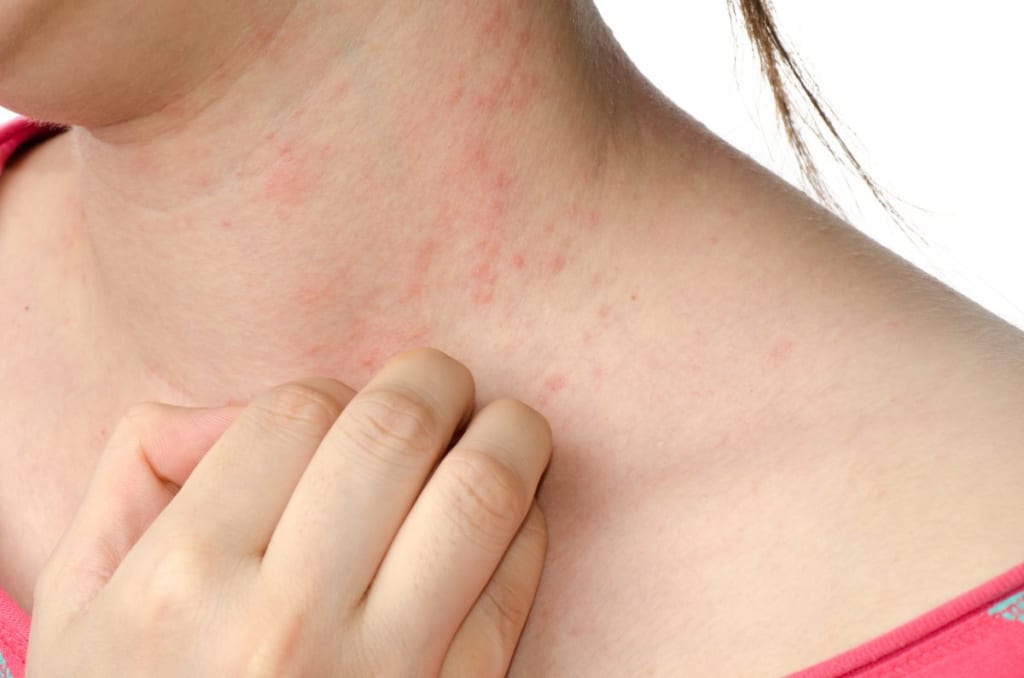How Excessive Salt Consumption May Increase Your Risk of Developing Eczema
Discovering the Hidden Connection Between Salt and Skin Health.

Eczema, also known as atopic dermatitis, is a chronic skin condition characterized by dry, itchy, and inflamed skin. While genetic predisposition and environmental factors are well-known contributors to eczema, recent research has begun to explore the impact of diet, particularly excessive salt consumption, on the development and exacerbation of this condition. This article delves into the connection between high salt intake and eczema, examining the underlying mechanisms and offering practical advice for managing salt consumption.
Eczema and Diet: The Connection;
Diet plays a crucial role in overall health, influencing various bodily functions, including the immune system and skin health. Certain foods and dietary habits can either trigger or alleviate eczema symptoms. For example, foods rich in anti-inflammatory properties, such as fruits, vegetables, and omega-3 fatty acids, can help reduce eczema flare-ups. Conversely, a diet high in processed foods, sugar, and certain additives may exacerbate the condition.
Consumption of Salt and Its Impact on the Body
Salt, or sodium chloride, is an essential mineral necessary for maintaining fluid balance, nerve function, and muscle contractions. However, excessive salt consumption can lead to a range of health problems, including hypertension, cardiovascular diseases, and kidney disorders. The recommended daily intake of salt is about 2,300 milligrams (mg) for adults, but many people consume much more than this, often due to the high salt content in processed and restaurant foods.
Eczema with Overconsumption of Salt
Recent studies have suggested a possible link between high salt intake and the development or worsening of eczema. While the exact mechanisms are not yet fully understood, several theories have been proposed:
Immune System Modulation: Excessive salt intake has been shown to affect the immune system. High levels of salt can promote the production of certain immune cells, such as Th17 cells, which are associated with inflammatory responses. An overactive immune response can lead to increased inflammation in the skin, exacerbating eczema symptoms.
Skin Barrier Function: The skin barrier is crucial in protecting against environmental irritants and maintaining moisture. Excessive salt may disrupt the skin barrier function, making it more susceptible to irritants and allergens that can trigger eczema flare-ups. A compromised skin barrier also leads to increased water loss, further drying out the skin and aggravating eczema.
Microbiome Imbalance: The skin and gut microbiomes play significant roles in maintaining skin health and immune balance. High salt intake can alter the composition of these microbiomes, leading to an imbalance that may contribute to the development of eczema. For instance, changes in the gut microbiome can affect immune responses and inflammation, potentially worsening eczema symptoms.
Proof from Studies
Several studies have supported the hypothesis that excessive salt consumption can influence eczema:
Animal Studies: Research conducted on mice has shown that a high-salt diet can exacerbate skin inflammation and increase the severity of eczema-like lesions. These findings suggest that salt may have a direct impact on the skin’s inflammatory response.
Human Studies: While research on humans is still limited, some epidemiological studies have found associations between high salt intake and increased prevalence of eczema. For example, a study published in the Journal of Allergy and Clinical Immunology found that children with higher sodium intake were more likely to have atopic dermatitis.
Useful Tips for Controlling Your Salt Intake
Given the potential link between excessive salt consumption and eczema, it is prudent for individuals, especially those with a predisposition to eczema, to manage their salt intake. Here are some practical tips:
Read Labels: Check food labels for sodium content and choose products with lower sodium levels. Be mindful of processed foods, which are often high in salt.
Cook at Home: Preparing meals at home allows you to control the amount of salt added to your food. Use herbs, spices, and other flavorings as alternatives to salt.
Limit Processed Foods: Reduce the intake of processed and fast foods, which are typically high in sodium. Opt for fresh, whole foods instead.
Stay Hydrated: Drink plenty of water to help flush excess sodium from your system and maintain healthy skin hydration.
Consult a Nutritionist: If you have concerns about your salt intake and its impact on eczema, consider consulting a nutritionist or healthcare professional for personalized advice.
Conclusion
Current research indicates that an excessive salt intake may contribute to the development and aggravation of eczema, while further studies are need to completely understand this association. People may be able to lessen the likelihood and intensity of eczema flare-ups by controlling their salt intake and eating a balanced diet, which will improve their skin and general wellbeing.
About the Creator
Enjoyed the story? Support the Creator.
Subscribe for free to receive all their stories in your feed. You could also pledge your support or give them a one-off tip, letting them know you appreciate their work.





Comments (1)
So informative! thank you for posting!